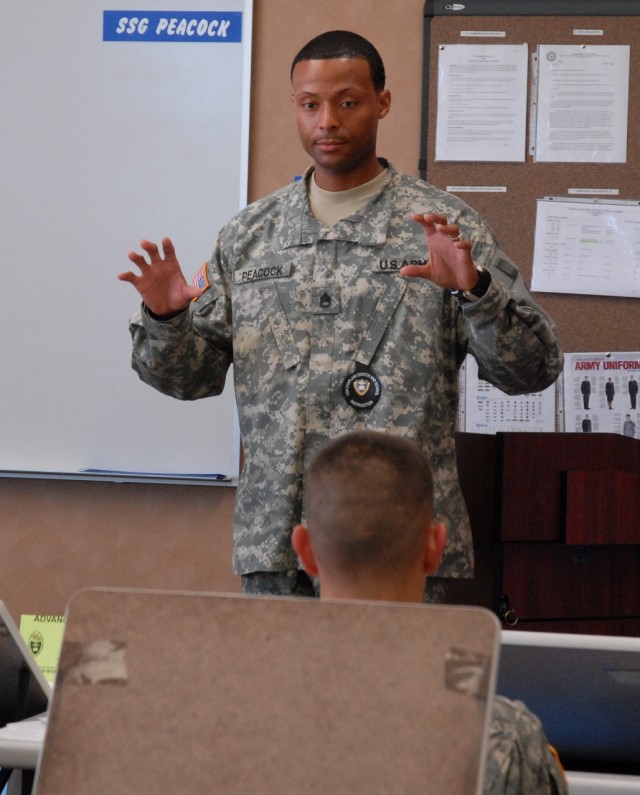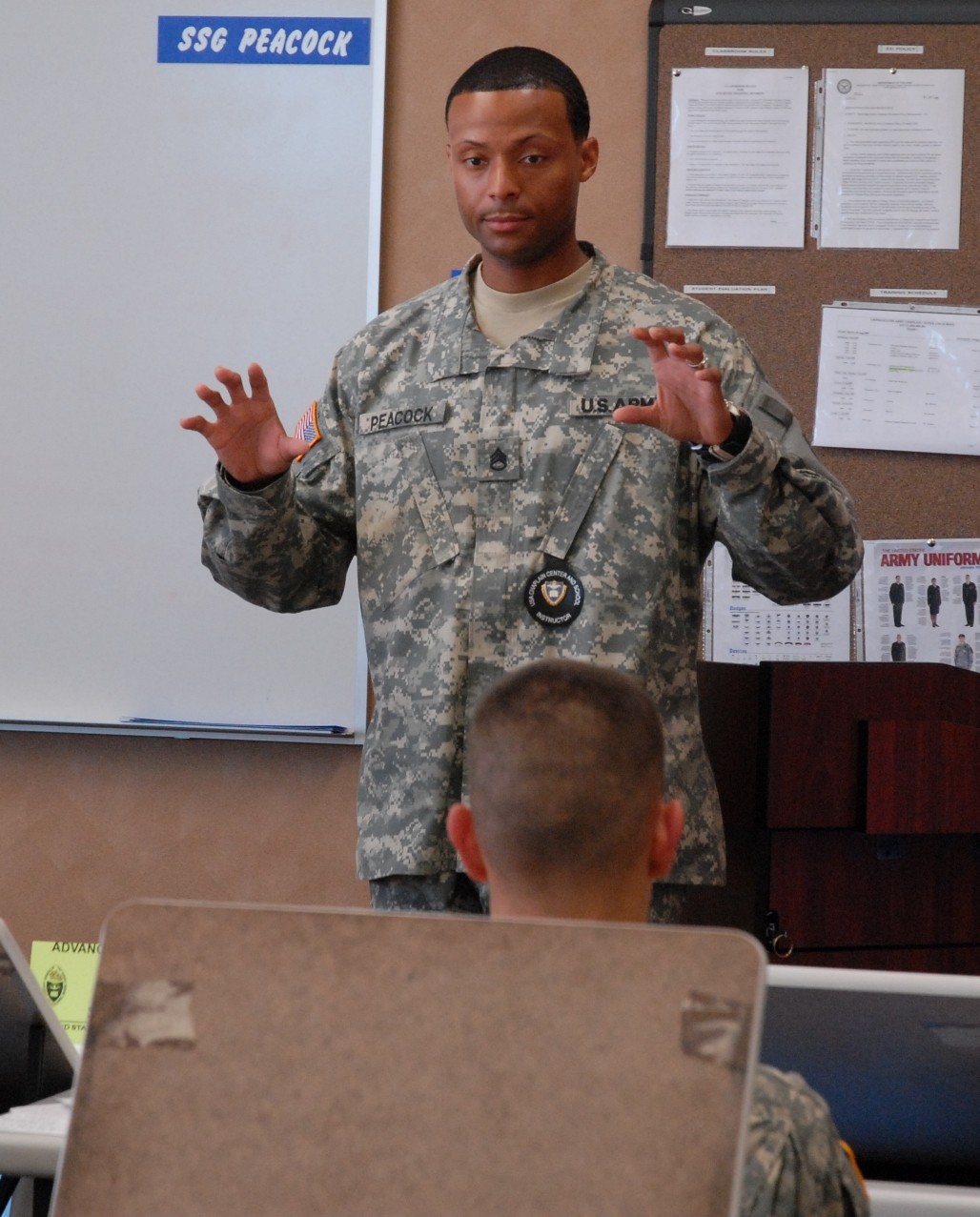FORT JACKSON, S.C. -- On any given Sunday, Fort Jackson hosts 36 worship services to allow Soldiers from different religions and denominations to practice their faith. Whereas chaplains are in the forefront during the services, those who prepare the events work mostly behind the scenes.
"Chaplain assistants make religious support happen," said Chaplain (Lt. Col.) Daniel Wackerhagen, deputy installation chaplain. "A lot of planning, coordination and execution go into religious services, events and activities. These events are very important to those who attend and participate. There is no room for error. From worship services to weddings to funerals to marriage enrichment training, chaplain assistants are there making sure that things are done to the highest standard possible."
The military occupational specialty "chaplain assistant" was first established 100 years ago this December. The first chaplain assistants were assigned to be the chaplains' clerks and helped with religious programs. Nowadays, chaplain assistants have a wide range of duties, ranging from setting up services or working as a fund manager to providing security for chaplains on the battlefield.
Master Sgt. Fred Bueno is the noncommissioned officer in charge at the Installation Chaplain Office and oversees the 25 chaplain assistants who provide religious support on Fort Jackson.
Bueno said his MOS has undergone some changes in the 19 years he has been a chaplain assistant.
"When I first came in, we were focused on typing memoranda, for example, about Soldiers coming in for compassionate reassignment or hardship discharge. We were the experts in preparing those documents for the chaplain," Bueno said. "In 2001, we transitioned to the operational side. ... Now it's all about security -- going downrange and providing security for the chaplain, setting up for a service in a combat environment, preparing the unity ministry for deployment. It's not a major change, but it's a shift from the admin into the operational role for the chaplain assistants."
That shift is also reflected in the Advanced Individual Training chaplain assistants receive. One of the tasks students face during the seven-week course is to prepare a religious area impact assessment, explained Staff Sgt. Desmond Peacock, an instructor with the U.S. Army Chaplain Center and School.
"We give (the students) a country and certain questions that they have to answer. For instance, 'What are the indigenous religions in that area' How are they viewed by the population' What are their myths' What are their doctrines''" Peacock said. "The reason why we do that is because when you get to your unit and you are deploying to a certain area, your commander may want you to give him a religious area impact assessment."
In addition to classroom training on various subjects, new chaplain assistants will also participate in a four-day situational training exercise, during which they practice warrior tasks and battle drills and learn how to accommodate religious support while on the battlefield, Peacock said.
One of the unique things about the MOS is that Soldiers fresh out of AIT are assigned to work directly for an officer, Bueno said. Being part of a two-person ministry team forges a strong relationship between chaplains and their assistants, especially during deployments, Wackerhagen said.
"One of the first lessons chaplains learn in the combat environment is that they need their chaplain assistant if they expect to survive for very long," he said. "Those relationships that are forged in the crucible of hardships, deployment or war remain strong throughout the years and create the kind of personal and professional respect that chaplains and chaplain assistants have for each other."
That respect extends beyond just the personal relationship, Bueno explained.
"To be a successful chaplain assistant and to be a good one, you have to be respectful to others. The respect you show for your leaders and fellow Soldiers should reflect your respect for their religious beliefs, whatever they may be," he said. "You have to be able to respect their opinions, their ideas. You have to be able to accommodate everyone's faith."
Peacock said it is not uncommon for a chaplain assistant to work for a chaplain who is of a different faith than his or her own or to be assigned to support services of a different faith.
"We do have to be very sensitive to other faiths, because you will encounter and you will have to be with Soldiers who do not believe in what you believe in, or maybe not believe in anything at all," he said.
Bueno said that even though chaplain assistants provide religious support, there is no requirement for them to be religious or spiritual.
"I've also seen chaplain assistants of no faith who have done better than the ones who claimed to have been very faithful," he said. "You can be an atheist and be a chaplain assistant."
Peacock and Bueno both said that being a chaplain assistant is hard work, but very rewarding.
"Moving (to USACHCS) as an instructor, it becomes even more rewarding, because I get to give my experiences to the new Soldiers coming into the field," Peacock said. "We give them a foundation, a base, so that they're prepared to go to their duty stations. And they're prepared to accommodate religious support to the Soldiers in their unit on the battlefield and in the garrison environment."


Social Sharing